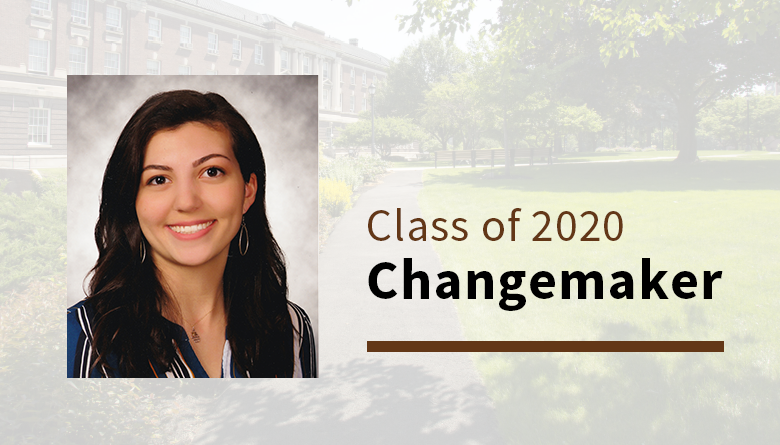Growing up along the coast of the Great Bay in Portsmouth, New Hampshire, Natalie Tague fondly remembers the days of her childhood spent catching frogs and horseshoe crabs with friends at the wildlife reserve near her house.
What started as a favorite pastime evolved into a lifelong passion for sustainability. “At first, you couldn’t even walk toward the pond without seeing eight frogs in front of you,” Tague said. “But every year we went, there were fewer and fewer frogs at the same point in the season. At one point when we went back, there were none.”
In addition to the town she grew up in, Tague attributes her love for nature to her heritage, which also instilled in her a passion for helping people. Part of the Citizen Potawatomi Nation, a Potawatomi tribe forced to relocate from Michigan to Oklahoma in 1838, she remembers the days she spent skiing with her father as he told her stories about their tribe.
“It definitely made me more aware of why we as people need to understand differences, celebrate differences, and also respect each other and the land that we live on,” Tague said. “Understanding history is actually the way we can unlock a better future.”
At Rensselaer Polytechnic Institute, Tague has dedicated the past four years to helping both the planet and the people who inhabit it. Always interested in both science and art — two seemingly different disciplines — she initially struggled when it came to deciding on a major and career path. However, after stumbling across the Rensselaer Design, Innovation, and Society program during her senior year of high school, Tague finally found what she had been looking for.
“It looked like the perfect mix of art, science, and helping people,” she said. “And it turned out to be just that.”
In her free time, Tague served as a member of the Student Sustainability Task Force, a group of students dedicated to promoting sustainability on the Rensselaer campus. She has also been part of the public relations committee for her tribe’s chapter of the American Indian Science and Engineering Society, an organization dedicated to increasing the representation of indigenous people in the fields of science, technology, engineering, and math. “It’s really important to see oneself represented,” Tague said. “It’s really hard when there are very few people like you in a field.”
After graduating in May with two bachelor’s degrees, one in business and management and the other in design, innovation, and society, Tague hopes to go on to work in branding or product design for a company in the outdoor recreation industry. “I really want to reconnect people with the outdoors and do so in sustainable ways,” she said.

